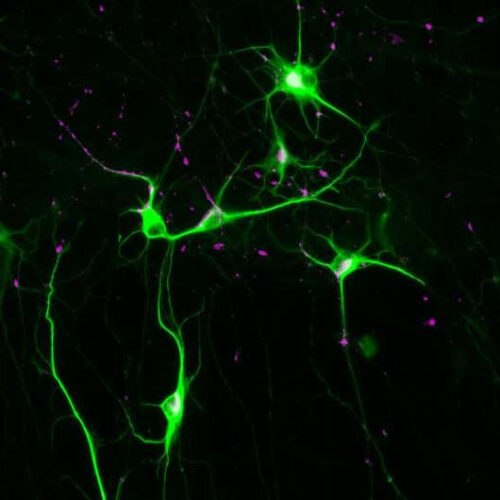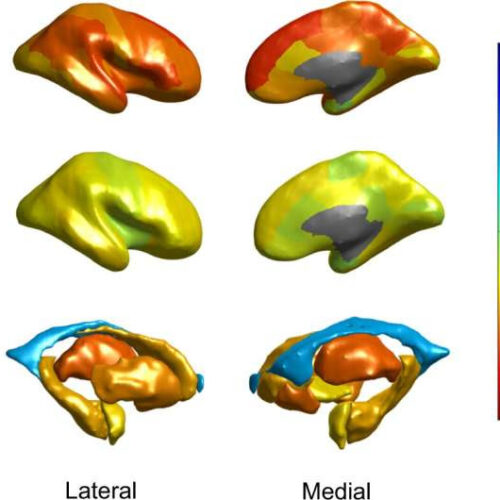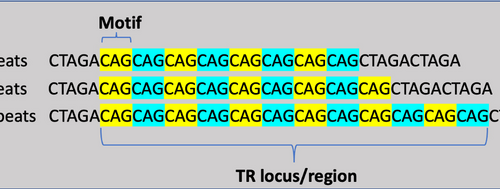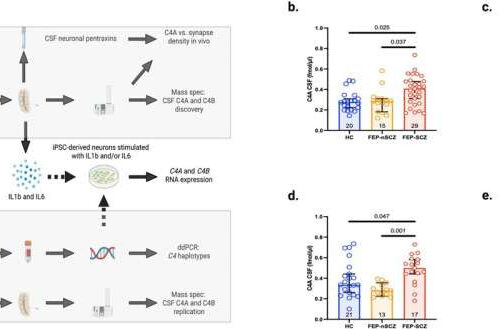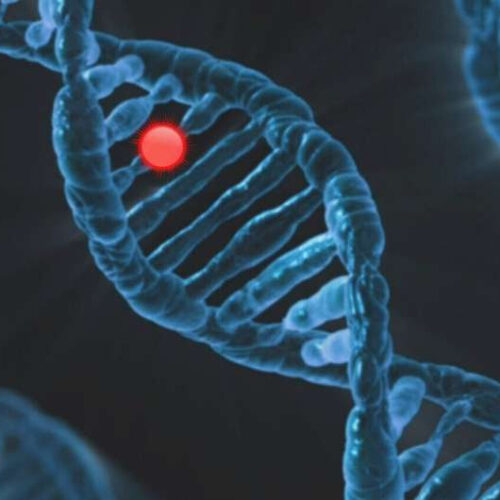by Melissa Rohman, Northwestern University Representative image of neuronal markers MAP2 (green) and Syn1 (magenta) stained in induced excitatory neurons. Credit: Euan Parnell, PhD. Targeting calcium signaling in neurons represents a promising therapeutic approach for treating a rare form of schizophrenia, according to a Northwestern Medicine study published in Biological Psychiatry. “This is the first time...
Tag: <span>Schizophrenia</span>
Schizophrenia may be linked with vascular alterations in the brain, study suggests
Reviewed by Emily Henderson, B.Sc. Jan 19 2023 A study conducted in Brazil and reported in an article published in Molecular Psychiatry suggests that schizophrenia may be associated with alterations in the vascularization of certain brain regions. Researchers at the State University of Campinas (UNICAMP), D’Or Research and Education Institute (IDOR) and the Federal University of Rio de...
Study examines brain aging in people with schizophrenia
by CORDIS Correlation coefficients of predicted brain age and FreeSurfer features across control and schizophrenia (SZ) groups. Bivariate correlations are shown to provide an indication of the relative contribution of features in brain age prediction. The figure shows Pearson correlations between predicted brain age and cortical thickness features (top row), cortical surface areas (middle row)...
Scientists link rare genetic phenomenon to neuron function, schizophrenia
UNIVERSITY OF NORTH CAROLINA HEALTH CARE IMAGE: TANDEM REPEAT CREDIT: JIN SZATKIEWICZ LAB, UNC SCHOOL OF MEDICINE CHAPEL HILL, NC – In our cells, the language of DNA is written, making each of us unique. A tandem repeat occurs in DNA when a pattern of one or more nucleotides – the basic structural unit of...
Inflammation may amplify effect of genetic risk variants for schizophrenia
by Karolinska Institutet Cerebrospinal fluid levels of C4A are increased in patients with first-episode psychosis who develop schizophrenia. a Overview of the study design. b In the discovery cohort (KaSP), patients with first-episode psychosis (FEP) who developed schizophrenia (FEP-SCZ; n = 29) displayed significantly higher cerebrospinal fluid (CSF) C4A concentrations as compared to healthy controls (HCs; n = 20)...
Solving the dopamine riddle: New study pinpoints genetic mechanism linking brain chemical to schizophrenia
LIEBER INSTITUTE FOR BRAIN DEVELOPMENT Baltimore, Md. (November 1, 2022) – Researchers at the Lieber Institute for Brain Development(LIBD) believe they have solved a riddle that has challenged scientists for more than 70 years: how the brain chemical dopamine relates to schizophrenia, the often-devastating brain disorder characterized by delusional thinking, hallucinations and other forms of psychosis. Through...
Huge unveiling of schizophrenia brain cells show new treatment targets
UNIVERSITY OF COPENHAGEN – THE FACULTY OF HEALTH AND MEDICAL SCIENCES If you thought it was easy to analyse brain cells, think again. When you take a brain tissue sample, all that your analysis would normally show you is an average for all the cell types present. And since there is a whole lot of...
Schizophrenia and bipolar disorder may be detectable years before illnesses begin
by University College Dublin Credit: Pixabay/CC0 Public Domain The risk of schizophrenia and bipolar disorder may be detectable years before the illnesses begin, according to new research. A University College Dublin led study funded by the Health Research Board has found that 50% of people who developed these mental health disorders had attended specialist child and adolescent...
Understanding the symptoms of schizophrenia
Schizophrenia is a fairly uncommon condition, affecting around 0.25–0.64% of people in the United States. It can have a profound impact on a person’s life, as well as the lives of those around them. Schizophrenia is a lifelong condition, but treatment can help manage the symptoms. This article will look at the causes and symptoms...
DNA associated with autism and schizophrenia: A synaptic adhesion signaling mechanism linked to disabilities
by DGIST (Daegu Gyeongbuk Institute of Science and Technology) Credit: Pixabay/CC0 Public Domain A joint research team of Daegu Gyeongbuk Institute of Science and Technology professors Um Ji-won and Ko Jae-won of the Department of Brain Sciences reported a new genetic mutation related to intellectual disability and discovered an excitatory synaptic activation signaling mechanism related...

